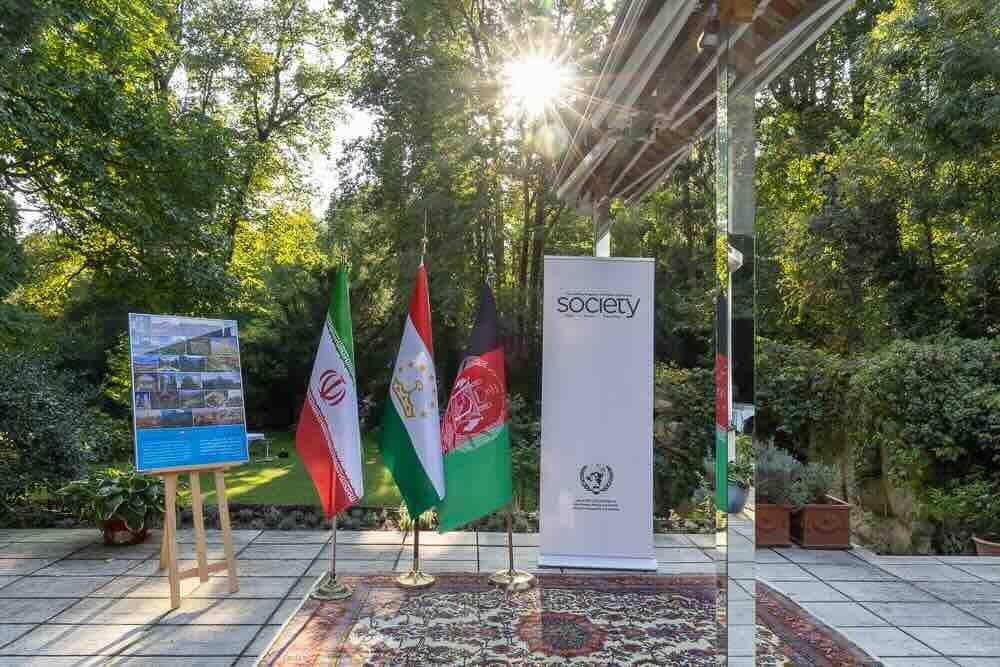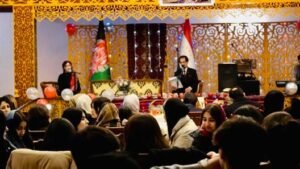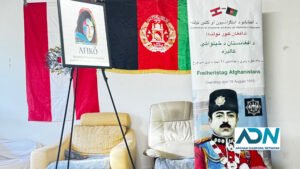Persian Heritage Unites Afghanistan, Iran, and Tajikistan in Vienna

Photo: @Afghan Embassy to Vienna
By Wakeel Attock
On September 19, 2024, Vienna hosted a joint cultural event that brought together Afghanistan, Iran, and Tajikistan, three nations united by the Persian language.
Organized in collaboration with Society Magazine, the event was attended by representatives from the Austrian government, diplomatic missions, the Afghan diaspora, and various cultural organizations. The Embassy of Afghanistan in Vienna led the organization of this significant event, which celebrated the role of the Persian language in fostering unity and promoting cultural understanding among these countries.
Often referred to as the “language of love and poetry,” Persian has long served as a vehicle for artistic expression and philosophical thought. From the timeless works of Maulana Rumi and Hafez to contemporary literature, Persian has conveyed themes of love, tolerance, and the beauty of human experience. Beyond its role in art, the Persian language acts as a cultural bridge between Afghanistan, Iran, and Tajikistan, supporting cultural diplomacy and promoting peaceful relations.
The event highlighted the continued relevance of these shared values, providing a platform to showcase the softer, more beautiful facets of these nations’ identities—ones defined not by political unrest but by a shared appreciation for art, music, and history.
Afghan, Tajik, and Iranian culture were celebrated through music, food, and art, reflecting the common struggles, dreams, and hopes of Persian-speaking peoples.
During the event, Afghanistan’s Ambassador to Austria, Manizha Bakhtari, Tajikistan’s Ambassador Edibek Kalandar, and Reza Ghulami, a cultural representative from the Iranian Embassy, spoke to Afghan Diaspora Network (AND) about the importance of such cultural events in building ties between nations.
Afghanistan’s Ambassador to Austria, Manizha Bakhtari, emphasized the significance of intercultural gatherings in showcasing the richness of culture, language, and heritage.
“Events like these offer people unfamiliar with our history and traditions the opportunity to learn about them,” she explained.
Ambassador Bakhtari also spoke about the need to shift the narrative around Afghanistan, a country often associated with conflict and crisis. She stressed that cultural events allow Afghanistan to present a different image—one that celebrates its historical depth, cultural richness, and commitment to peace.
“We are proud to present our rich history and vibrant culture to the world, demonstrating that Afghanistan is not just defined by war and conflict, but also by beauty, understanding, love, and the strong bonds of friendship among its people,” she said.
For the Afghan diaspora, events like these provide a sense of pride and belonging. Bakhtari noted that such gatherings reassure the community that their cultural heritage is being recognized and celebrated on the international stage.
“For the Afghan community living in diaspora, events like this are heartwarming and reassuring, showing them that their cultural heritage is appreciated by both the embassy and other institutions,” Bakhtari said.
Tajikistan’s Ambassador, Edibek Kalandar, praised Afghan music, particularly the legendary Ahmad Zahir, highlighting the deep respect and admiration the people of Tajikistan have for Afghan musicians.
Reza Ghulami, a cultural representative from the Iranian Embassy, expressed gratitude to Society Magazine for their collaboration in organizing such a meaningful event. He noted that the event not only united the three Persian-speaking nations but also introduced the culture and way of life of Afghanistan, Iran, and Tajikistan to a wider audience.
The event concluded with a joint musical performance, traditional dance, and the sharing of Persian cuisine—powerful symbols of the cultural solidarity and friendship between Afghanistan, Iran, and Tajikistan.
Afghan poet Wakeel Attock previously served as the director of culture for the eastern provinces of Laghman and Nooristan.
Note: The contents of the article are of sole responsibility of the author. Afghan Diaspora Network will not be responsible for any inaccurate or incorrect statement in the articles.











